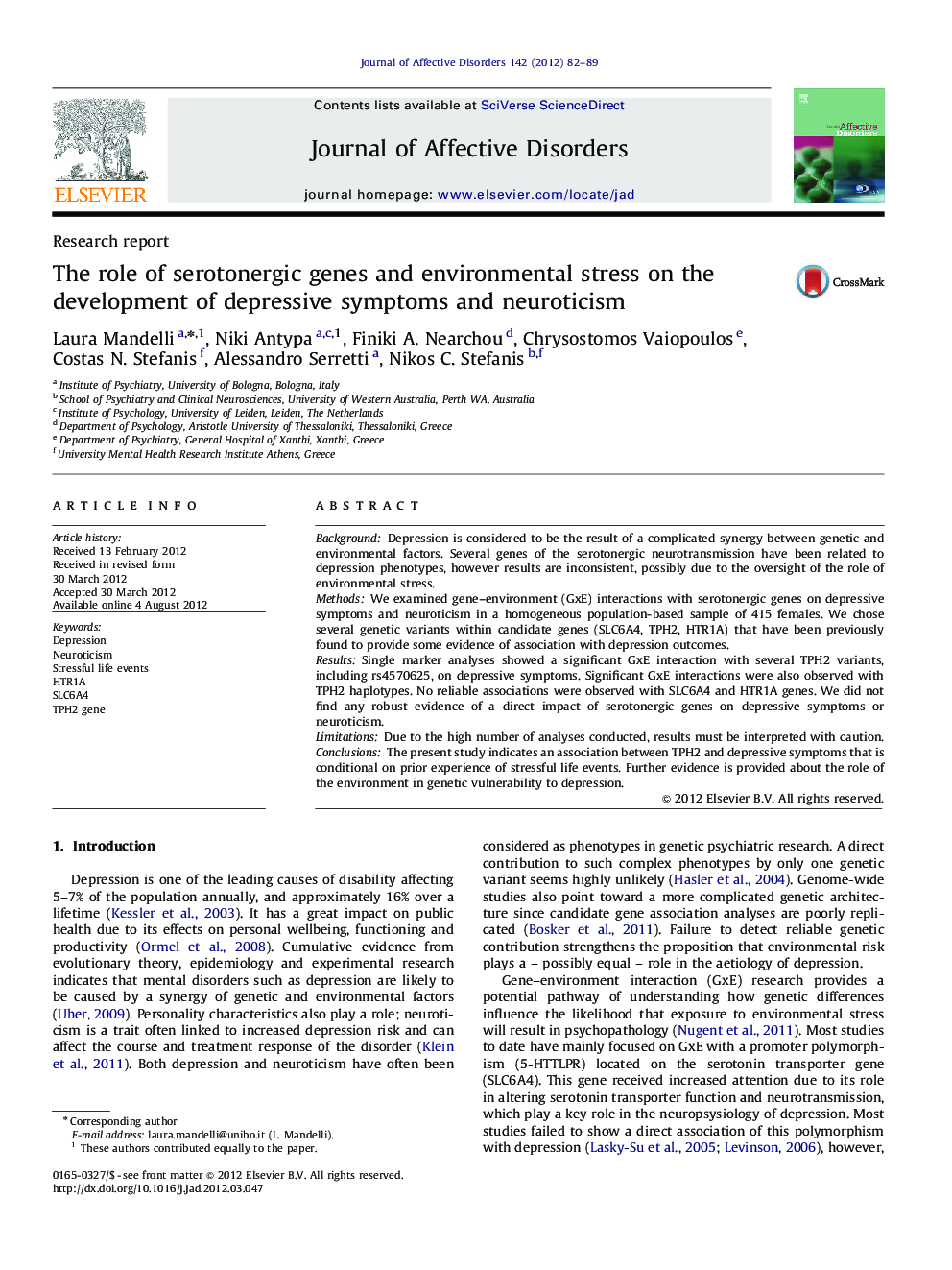| Article ID | Journal | Published Year | Pages | File Type |
|---|---|---|---|---|
| 4186308 | Journal of Affective Disorders | 2012 | 8 Pages |
BackgroundDepression is considered to be the result of a complicated synergy between genetic and environmental factors. Several genes of the serotonergic neurotransmission have been related to depression phenotypes, however results are inconsistent, possibly due to the oversight of the role of environmental stress.MethodsWe examined gene–environment (GxE) interactions with serotonergic genes on depressive symptoms and neuroticism in a homogeneous population-based sample of 415 females. We chose several genetic variants within candidate genes (SLC6A4, TPH2, HTR1A) that have been previously found to provide some evidence of association with depression outcomes.ResultsSingle marker analyses showed a significant GxE interaction with several TPH2 variants, including rs4570625, on depressive symptoms. Significant GxE interactions were also observed with TPH2 haplotypes. No reliable associations were observed with SLC6A4 and HTR1A genes. We did not find any robust evidence of a direct impact of serotonergic genes on depressive symptoms or neuroticism.LimitationsDue to the high number of analyses conducted, results must be interpreted with caution.ConclusionsThe present study indicates an association between TPH2 and depressive symptoms that is conditional on prior experience of stressful life events. Further evidence is provided about the role of the environment in genetic vulnerability to depression.
